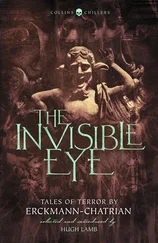His tone of voice startled Rachel. She began to make some remark, reconsidered, and said instead, “If I may ask, how long have you been acquainted with her? You were neighbors, weren’t you?”
Rechnitz answered, “We were neighbors when we were children, but I haven’t seen her since I started high school.”
“Interesting, most interesting,” said Rachel.
“What’s so interesting?” asked Leah.
“It is, don’t you agree, Doctor?”
Leah said, “We’d do better to go for our walk. It’s a shame to waste time indoors. Are you ready, Rachel?”
“Yes, ready.”—”And so?”—”So, let’s go.”— “Where to?”—”Oh, wherever our feet take us. Doctor, what do you say? Shall we go to Mikveh? Or to Sarona?”
Rechnitz said, “I’m invited to dinner, so I can’t go very far.”
Rachel laughed. “It’s not an hour since he left her, and he already wants to be back.”
Rechnitz looked at the clock. “Anyway,” he said, “I have time for a short walk.”
“I’ll take it upon myself,” said Leah, “to bring you back to the place you have to be at the time you have to be there.”
They turned and took their way along the sea, as people in Jaffa do when they have no special destination.
XI
The sand, neither too loose nor too hard-packed, gave off a good smell. And above the sand, though not too far from earth, the sky was full of fresh clouds, half of them lead tinged with silver, and half, red gold. Over these were smaller clouds; some the shape of beasts or birds, and some rising like the rays of sunrise. Mists of sulphur veiled them, mists that were torn, then opened, that wheeled and then moved on. The noise of the waves mounted, the sea was full, casting up numberless new conches and shells on the margin of the beach, like some being that lacked peace in its depths.
Rachel picked up a hollow shell and held it to her ear. Leah was about to make some remark but thought better of it and said nothing. She stooped to lift up a shell, whispered into it and threw it into the sea. Rechnitz picked up a plant that the waves had left, inspected it, and remarked, “I forgot to ask what time dinner is served.”
Rachel looked at him as if she didn’t know where things were heading. “Are you so hungry?”
“No, but…”
She laughed. “Well, let’s ask.”
He nodded. “Yes, of course; we had better go.”
Leah gazed at the sea. “How lovely it is. It’s a pity we have to leave.”
“I can promise you,” smiled Rachel, “that the sea won’t run away between now and tomorrow.”
“I suppose so,” Leah answered, still looking out to sea.
“Don’t you believe me?”
Leah laughed. “All right, let’s go.”
They walked back and reached the hotel. Shoshanah was taking a walk on the grounds. Rachel halted suddenly and stared straight in front of her. Finally she pressed a hand to her brow and exclaimed, “How lovely that girl is! Who is she?”
Rechnitz silenced her and whispered, “That’s she; that’s the Consul’s daughter.”
“Oh indeed,” answered Rachel in a different tone. “It’s clear that she’s haughty!”
“How do you know that?” said Leah.
“How do I know that she’s haughty? Didn’t you see that motion of her head when she returned Dr. Rechnitz’s greeting?”
Jacob, however, recognized the gesture; she had inclined her head similarly when the Consul invited him to dinner. Such movements are unwilled: they do not come from our awareness, nor from the soul, which normally govern our gestures.
Leah glanced down at Jacob’s hands. “You are going to your meeting empty-handed. Where can we get you some flowers to bring to your guests?”
Jacob was dismayed. He should indeed have thought of this, but he had made no preparations for his visitors. He looked hopefully at Leah, who gazed at the flower beds in front of the hotel entrance and commiserated with him.
Rachel suggested, “Mira lives only a few steps away; and if she’s not at home, we can try Raya. Her Petersburg cousin just smothers her in flowers. Don’t worry, Dr. Rechnitz; we shan’t send you along empty-handed.”
Rechnitz glanced at her imploringly, took off his hat in gratitude, and cried, “Thank you!”
Rachel continued, “If it weren’t for that fine lady in the garden, I might have fetched some flowers from the porter. There’s nothing lovelier than white narcissus in the hands of a black African. Why are you silent, Dr. Rechnitz? Tell us a story, like that one about the African queen who used to come to her council of state riding on the back of one of her ministers.”
Leah hugged her, exclaiming, “You are a good little girl, Rachel!”
“Aren’t I? Taking the flowers that Raya’s cousin brings her and sending them to that fine lady by means of Dr. Rechnitz! It would be still better if they were Mira’s flowers originally, which she had given first to the cousin! Forgive me, Dr. Rechnitz, I really don’t mean any harm. Shake hands and let’s make up. Aren’t you feeling cold, Leah?” Rachel slipped an arm around her friend’s shoulder and kissed her on the neck. “Your neck tastes salty, Leah.”
In return Leah embraced Rachel, kissed her warmly and said, “I don’t know what’s the matter with me. I can’t say that I am happy, but I can say that things seem good.”
“If they seem good they are good,” said Rachel. “For my part, I really don’t know what’s good and what isn’t.”
With her eyes on the ground, Leah pondered what her friend had said.
XII
Rechnitz arrived about half an hour before the meal. Shoshanah was standing near the entrance, examining the picture postcards which the hotel clerk had set out before her. Seeing Jacob, she greeted him with a nod and returned to her postcards, laying some down for a second inspection. The Consul was below in the reading room, looking over a newspaper. He caught sight of Rechnitz, removed the cigar from his lips, put his paper down on the table, and extended his hand.
“I’m sorry to interrupt your reading,” Rechnitz remarked.
The Consul took off his spectacles. “There’s no news. The world carries on as usual, the newspapers likewise. They make us participate in the world’s affairs according to their own notions. These newspapers unite mankind; they make opinions uniform. True, they may disagree among themselves, but their very disagreements prove that their outlook is basically the same and that they only differ on details. In the future, all human beings will be alike, except perhaps the savages in Africa — they may keep some of the individuality that God planted in the hearts of His creatures. Well, well! I’m philosophizing. All the same, there’s a grain of truth in what I say, even if it sounds like armchair philosophy. But you, I am sure, have found interesting people here!”
At this point the Consul called over a waiter and told him to reserve a special table for them at dinner, adding that if this were not feasible, they would wait until all the guests had finished their meal. Turning back to Rechnitz, he said, “That is to say, if you are not hungry. What were we talking about before? The press, was it? No, it was about people. Have you found interesting people here?”
“Where are people not interesting? It seems to me that every man has his appeal. Perhaps this is because I am not well acquainted with human nature and don’t know many people. And perhaps it is because most of the people in Jaffa are Russian Jews. And most of the Russians are lively — in mind and in body: they never get involved in one all-absorbing interest, with the exception of arguments; in that respect, of course, they are all alike.”
Читать дальше












